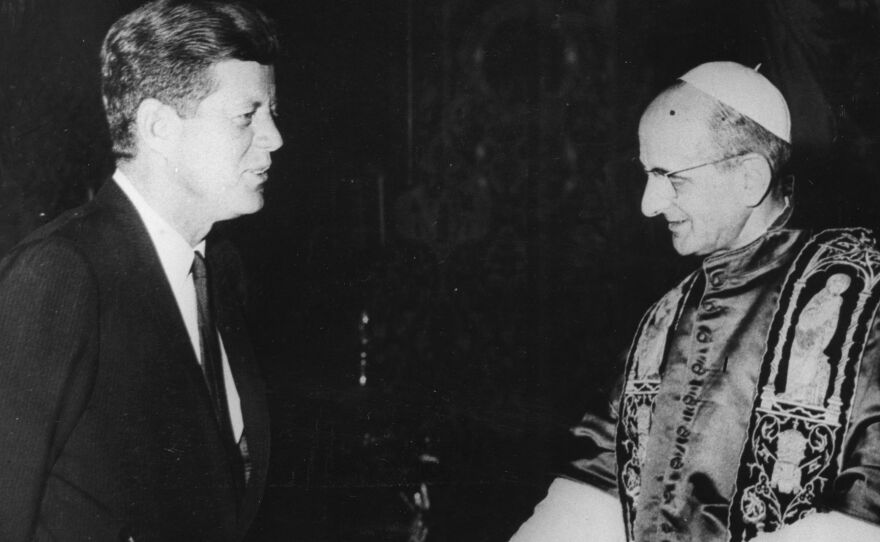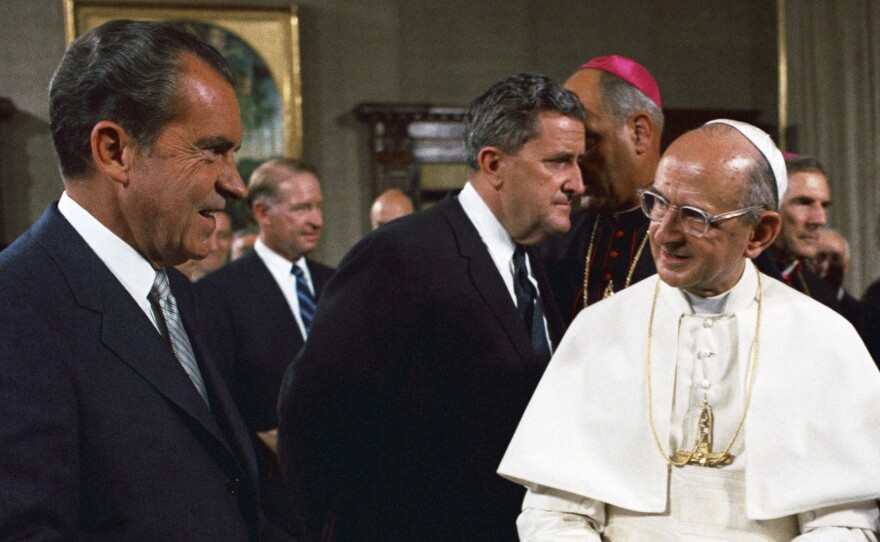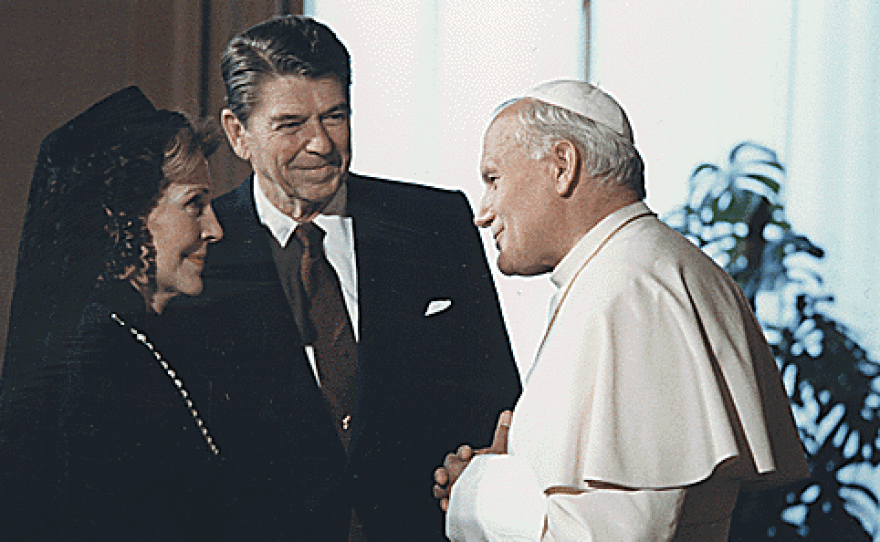


President Obama meets Pope Francis at the Vatican on Thursday, the 30th anniversary of formal relations between Washington and the Holy See and against a backdrop of a sometimes turbulent history in U.S.-Vatican ties.
The first high-level bilateral contact was in 1788, as the Vatican foreign minister recalled recently. Speaking in a large renaissance hall, Archbishop Dominique Mamberti said President George Washington, through his envoy Benjamin Franklin, informed the Vatican that it did not need to seek authorization from the U.S. for the appointment of bishops.
The president's reasoning, Mamberti explained, was because "the revolution that brought freedom to the colonies, first and foremost brought that of religious freedom."
With that auspicious beginning, relations remained friendly until the 1860s. Massimo Franco, author of a book on the history of U.S.-Vatican relations, says that's when the United States was swept up in an anti-Catholic wave.
"There were many, many people fearing the Vatican to be a foreign agent trying to re-introduce religion wars in the United States," Franco said. "So the papacy has always been seen as an enemy, or anyway as a potential enemy."
It took more than a century until the formal partnership was restored in 1984 with the realization that the U.S. and the Vatican had a common enemy — communism.
"With John Paul II, the Polish pope, we had a turn," Franco said. "Ronald Reagan and the Republican administration felt the Polish pope might help to give final push to Soviet empire."
Still, there have been occasional rough spots over the past three decades.
The Clinton administration clashed openly with the Vatican over population control and abortion. And Pope John Paul II vehemently opposed the two U.S.-led wars against Iraq.
More recently, Franco says, the Vatican was dismayed by Washington's backing of the so-called Arab spring.
In Egypt, Syria and elsewhere, "the Vatican was an objective ally to lay dictatorships because they protected Christian minorities because they were lay, they were not (Islamic) fundamentalists," Franco said.
There's been much speculation whether Pope Francis will forcefully echo the U.S. bishops' opposition to the administration on a range of issues, and admonish the president on the contraceptive mandate in the Affordable Care Act.
Father John Wauk, a professor at the Opus Dei Pontifical University of the Holy Cross in Rome, said Thursday's meeting "could be very friendly, it could be more challenging. And it's reasonable to expect — though not necessarily the case — that the pope will not gloss over differences between the Catholic Church in U.S. and the Obama administration."
Obama and Pope Francis are likely to discuss a range of international issues – Ukraine, Syria, the Cuba embargo, the plight of minority Christians and perhaps immigration.
In the history of U.S.-Vatican relations, perhaps the biggest novelty is the first non-European pope in centuries.
"He is not a son of the Cold War, so all over the world he's not perceived as some of his predecessors, maybe mistakenly as a sort of religious corollary of the NATO alliance," said Franco, who calls Francis a post-ideological, global pope.
While the president and Francis share a commitment to fighting inequality, the pope has often denounced laissez-faire capitalism and the ills of globalization.
But Franco rejects the charge, made by some American conservatives, that Francis is anti-capitalist.
"This pope is a Latin American who saw in his country and in his continent all the great injustices created by a wild capitalism." Franco said. "He wants just capitalism to be more equal, more helpful to poor."
Francis may be surprised to learn how much the president knows about Catholicism. Not only was Obama an organizer in a Catholic-run community association in Chicago, when he lived in Indonesia as a boy, he studied at a school in Jakarta named St. Francis of Assisi.
Copyright 2014 NPR. To see more, visit http://www.npr.org/






